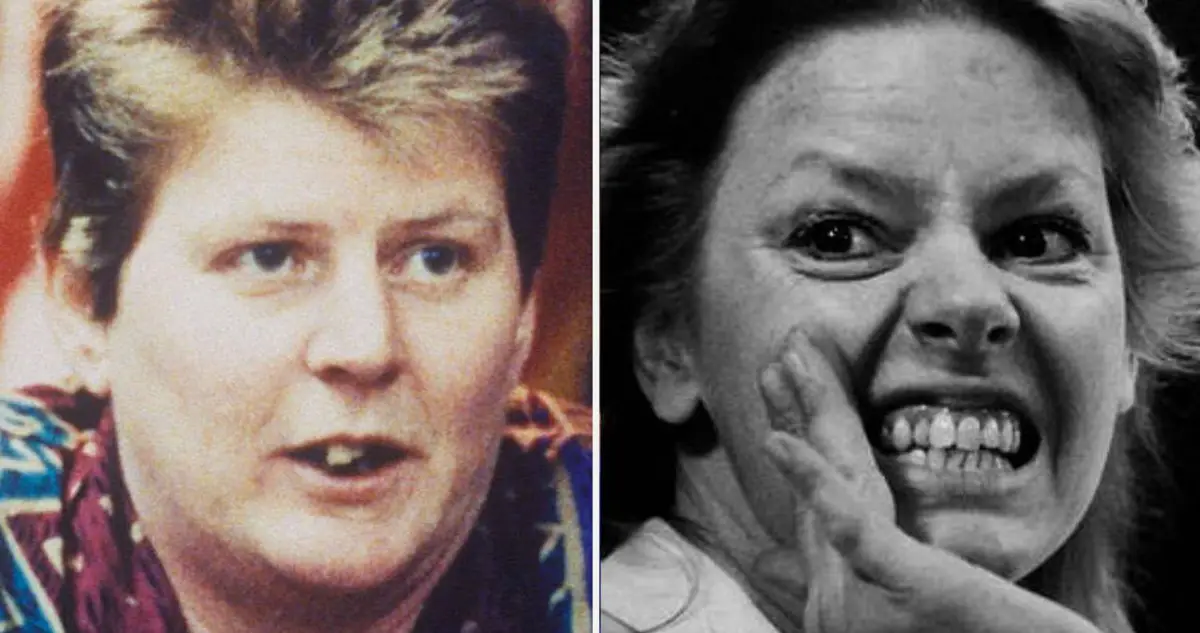When you dive into the dark and twisted world of Aileen Wuornos, you're not just exploring the life of a notorious serial killer; you're unraveling the complexities of a woman who became a symbol of controversy, injustice, and redemption. Her story, intertwined with the infamous Selby Moore case, has captivated audiences worldwide, sparking debates about mental health, poverty, and the justice system. This isn't just a tale of crime—it's a reflection of the societal issues that shaped her life and legacy.
From her early struggles to her transformation into one of America's most infamous female serial killers, Aileen Wuornos' journey is both haunting and thought-provoking. Her connection to Selby Moore adds another layer of intrigue to her already complex narrative. As we delve deeper into her story, it becomes clear that this wasn't just about a killer and her victim—it was about the systemic failures that led to tragedy.
This article aims to shed light on the life of Aileen Wuornos, her relationship with Selby Moore, and the broader implications of her case. Through an exploration of her background, the events surrounding her crimes, and the aftermath, we hope to provide a comprehensive understanding of her world. So, buckle up, because this is going to be one wild ride!
Read also:Kemonoparty A Furry World Like No Other
Table of Contents
- Biography: Aileen Wuornos
- Early Life and Struggles
- The Start of a Criminal Career
- Selby Moore: The First Victim
- Arrest and Trial
- Mental Health: The Hidden Factor
- The Justice System Under Scrutiny
- Media Impact and Public Perception
- Legacy: A Complex Figure
- Conclusion: Lessons Learned
Biography: Aileen Wuornos
Before we dive into the gritty details of her criminal career, let's take a moment to understand who Aileen Wuornos really was. Born on February 29, 1956, in Rochester, Michigan, Aileen's life was marked by tragedy from the very beginning. Her father, Leo Dale Wuornos, was imprisoned for child molestation before she was even born, and her mother abandoned her shortly after her birth. These early circumstances set the stage for a life filled with hardship and struggle.
Basic Information
| Full Name | Aileen Carol Wuornos |
|---|---|
| Date of Birth | February 29, 1956 |
| Place of Birth | Rochester, Michigan, USA |
| Date of Death | October 9, 2002 |
| Place of Death | Florida State Prison |
| Known For | Being one of America's most infamous female serial killers |
Her life was a whirlwind of events that shaped her into the person she became. From her struggles with poverty and abuse to her eventual descent into a life of crime, Aileen's story is a testament to the resilience and fragility of the human spirit.
Early Life and Struggles
Aileen Wuornos' early years were anything but easy. Raised by her grandparents after being abandoned by her parents, she faced a childhood filled with neglect and abuse. By the time she was 14, she had already dropped out of school and was working as a prostitute to survive. This early exposure to the harsh realities of life set the tone for her future.
Her life was a constant battle against the odds. She bounced from one foster home to another, never finding the stability she so desperately needed. This instability contributed to her eventual involvement in criminal activities, as she sought any means necessary to survive in a world that seemed to have abandoned her.
The Start of a Criminal Career
By the late 1980s, Aileen Wuornos had already established herself as a figure of notoriety in the world of crime. Her career as a serial killer began with a series of murders along the highways of Florida. What started as a desperate attempt to protect herself from perceived threats quickly spiraled into a deadly pattern of violence.
Her victims were mostly men she met while working as a prostitute. She claimed that these men had assaulted her, leading her to act in self-defense. However, as the body count rose, it became clear that there was more to her story than just self-preservation.
Read also:Gali Golan Leak The Inside Scoop You Didnt Know You Needed
Selby Moore: The First Victim
Selby Moore was the first of Aileen Wuornos' victims, and his death marked the beginning of her infamous killing spree. Moore, a 51-year-old man, was found dead in a wooded area near the Suwannee River in September 1989. His death was initially ruled as a homicide, but it wasn't until later that Aileen's name surfaced in connection with the crime.
Details of the Crime
According to Aileen, Selby Moore had attempted to sexually assault her, leading her to shoot him in self-defense. However, investigators found inconsistencies in her story, suggesting that there was more to the incident than she was letting on. This case set the precedent for the series of murders that followed, each one more shocking than the last.
As the investigation unfolded, it became evident that Aileen's actions were not just about self-defense. Her struggles with mental health and substance abuse played a significant role in her behavior, complicating the narrative surrounding her crimes.
Arrest and Trial
Aileen Wuornos' arrest in November 1990 marked the beginning of a legal battle that would capture the nation's attention. Her trial was a media sensation, with reporters and spectators alike eager to witness the proceedings against the woman dubbed "America's first female serial killer."
During the trial, Aileen represented herself, a decision that many believe was influenced by her deteriorating mental state. Her erratic behavior in court only added to the public's fascination with her case. Despite her claims of self-defense, the jury found her guilty of six counts of first-degree murder, leading to her eventual sentencing to death.
Mental Health: The Hidden Factor
Throughout her trial and subsequent appeals, Aileen's mental health was a recurring theme. Experts testified that she suffered from severe mental illness, including schizophrenia and post-traumatic stress disorder (PTSD). These conditions, coupled with a lifetime of trauma and abuse, likely contributed to her violent behavior.
Her case highlighted the need for a more compassionate and understanding approach to mental health within the justice system. Many argued that Aileen's execution was unjust, given her mental state and the circumstances of her upbringing.
The Justice System Under Scrutiny
Aileen Wuornos' case brought the flaws of the American justice system into sharp focus. Critics argued that her execution was a failure on the part of the system to address the root causes of her behavior. Issues such as poverty, mental health, and lack of access to proper legal representation were all factors that contributed to her tragic end.
Her story serves as a reminder of the importance of reforming the justice system to better serve those who are most vulnerable. It's a call to action for society to address the underlying issues that lead individuals like Aileen to commit such heinous acts.
Media Impact and Public Perception
The media played a significant role in shaping public perception of Aileen Wuornos. From sensationalized headlines to dramatized portrayals in movies and documentaries, her story has been both exploited and romanticized. Films like "Monster," starring Charlize Theron, brought her story to a wider audience, sparking renewed interest in her case.
While some viewed her as a victim of circumstance, others saw her as a cold-blooded killer who deserved her fate. The media's portrayal of her case often failed to capture the complexity of her life and the systemic issues that contributed to her downfall.
Legacy: A Complex Figure
Aileen Wuornos' legacy is a complex tapestry of tragedy, controversy, and redemption. Her story continues to resonate with those who seek to understand the darker aspects of human nature and the societal factors that contribute to such outcomes. She remains a polarizing figure, evoking both sympathy and condemnation.
Her case has sparked important conversations about mental health, poverty, and the justice system. It serves as a reminder of the importance of empathy and understanding in addressing the root causes of crime and violence.
Conclusion: Lessons Learned
In conclusion, Aileen Wuornos' story is one of tragedy and complexity. From her early struggles to her infamous killing spree, her life was a testament to the resilience and fragility of the human spirit. Her connection to Selby Moore and the subsequent events that unfolded serve as a stark reminder of the importance of addressing the underlying issues that lead individuals to commit such heinous acts.
We invite you to reflect on the lessons learned from her case and to continue the conversation about mental health, poverty, and the justice system. Share your thoughts in the comments below, and don't forget to explore other articles on our site for more insights into the world of true crime and beyond. Stay curious, stay informed!


